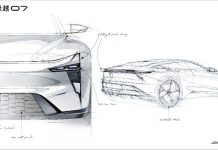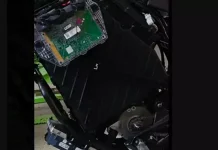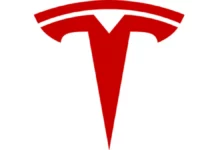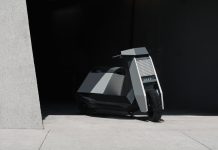National Highway Traffic Safety Administration (NHTSA) has reopened an investigation into alleged unintended acceleration in Tesla vehicles based on a petition received by the Office of Defects Investigation (ODI) in June 2023.
I'm sure people have seen this "paper" describing how SUA happens in a @Tesla.
— Jason Hughes (@wk057) July 5, 2023
This is basically just a hit piece made to look like something technical. People with actual technical knowledge of the working of a Tesla drive unit can debunk it instantly.
First off, it's… https://t.co/1O26KsFIQk
Key points:
- The NHTSA has reopened an investigation into alleged unintended acceleration on Tesla vehicles.
- The investigation covers around 1.8 million vehicles in the US, covering nearly every Tesla Model S, Model X, Model 3, and Model Y sold in the country.
- Roland Belt of Plymouth, Minnesota, sent the new petition that made the NHTSA change its mind, and it allegedly includes new information about the inverter design.
- The petition claims that a design flaw in the inverter allows intermittent higher electrical current to flow through a vehicle’s 12-volt electrical system.
- This sudden additional voltage draw could be triggered by demand for extra power from an accessory, preventing Tesla’s diagnostics system from identifying it as a fault.
- The petition claims that this fault would explain some or all the unintended acceleration incidents reported by Tesla owners in the US.
- However, some Tesla hackers have dismissed Belt’s claims, saying that the inverter design cited in the petition is not similar to what Tesla uses.
- The NHTSA’s investigation will probably include tests to verify if the claims in the petition are true.
Our hero @btsparks put hundreds of hours of research into showing the @NHTSAgov that Tesla SUA was real.
— fly4dat (@fly4dat) July 4, 2023
The NHTSA asked Tesla, $TSLA said there is nothing to see here, fake news, and with that, the NHTSA closed its "investigation".
People kept dying.https://t.co/nAJQuT9Tq5
Investigation
This investigation covers approximately 1.8 million Tesla vehicles in the US, including the Model S, Model X, Model 3, and Model Y.
The petition, submitted by Roland Belt of Plymouth, Minnesota, alleges a design flaw in the inverter of Tesla vehicles. Belt claims the flaw allows intermittent higher electrical current to flow through the vehicle’s 12-volt electrical system, potentially triggering unintended acceleration incidents. This additional voltage draw might occur when there is a demand for extra power from an accessory, which the Tesla diagnostics system may not identify as a fault.

NHSTA
However, some Tesla hackers have dismissed Belt’s claims. Jason Hughes, known for his work on Tesla battery packs and other hardware, stated on Twitter that a drop in the 12-volt rail voltage is unlikely to cause a calibration error leading to unintended acceleration. Another Tesla hacker, Green, suggested the claims in the petition could be easily verified by testing a spare inverter controller PCB.
The NHTSA’s investigation will likely involve various tests to verify the claims made in the petition. The investigation’s results will provide further insight into the alleged unintended acceleration incidents in Tesla vehicles.
Impact on Tesla
The reopening of the investigation by the NHTSA into alleged unintended acceleration in Tesla vehicles could potentially impact the company. Here are a few ways this investigation could affect Tesla:
- Reputation: The investigation brings renewed attention to the issue of unintended acceleration in Tesla vehicles. If the investigation reveals any validity to the claims made in the petition, it could negatively impact Tesla’s reputation for safety and quality. Public perception is crucial, and any safety concerns can influence potential customers and investors.
- Customer Confidence: Unintended acceleration is a serious safety concern for vehicle owners. If the investigation finds evidence of a design flaw or safety issue in Tesla’s vehicles, it could erode customer confidence in the brand. Existing Tesla owners may become concerned about their vehicles’ safety, and potential customers may reconsider their purchase decisions.
- Regulatory Scrutiny: The NHTSA investigation indicates increased regulatory scrutiny on Tesla’s vehicles. If any design flaws or safety issues are found, it could lead to stricter regulations or additional oversight from regulatory authorities. This could impact Tesla’s operations and potentially increase compliance costs.
- Financial Impact: Any negative findings or prolonged investigation could impact Tesla’s financial performance. If safety violations are discovered, it may result in legal costs, recalls, or even fines. Furthermore, a damaged reputation and reduced customer confidence could lead to decreased sales and potentially impact Tesla’s stock price.
Conclusion
the reopening of the investigation by the NHTSA into alleged unintended acceleration in Tesla vehicles has the potential to impact the company in several ways.
The investigation raises concerns about Tesla’s reputation for safety and quality, and if the claims are substantiated, it could damage customer confidence and impact sales. Increased regulatory scrutiny and potential financial repercussions, such as legal costs and recalls, are possible outcomes.
Response
However, awaiting the investigation results before drawing definitive conclusions is important. Tesla has the opportunity to address any issues identified and take appropriate measures to restore trust and ensure the safety of its vehicles.
The company’s response to the investigation and its ability to address any potential design flaws or safety concerns will significantly mitigate the impact on Tesla’s reputation and financial performance.
Roland Belt via Autoevolution, Greencarreports





































